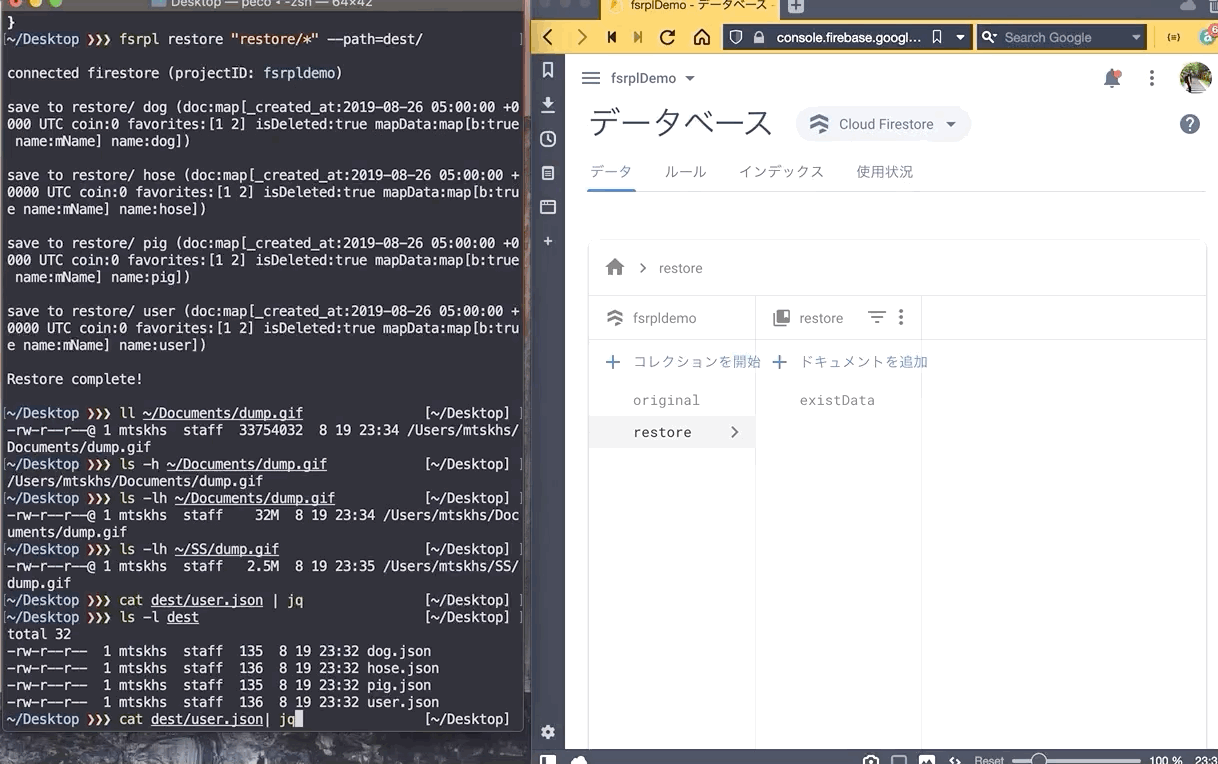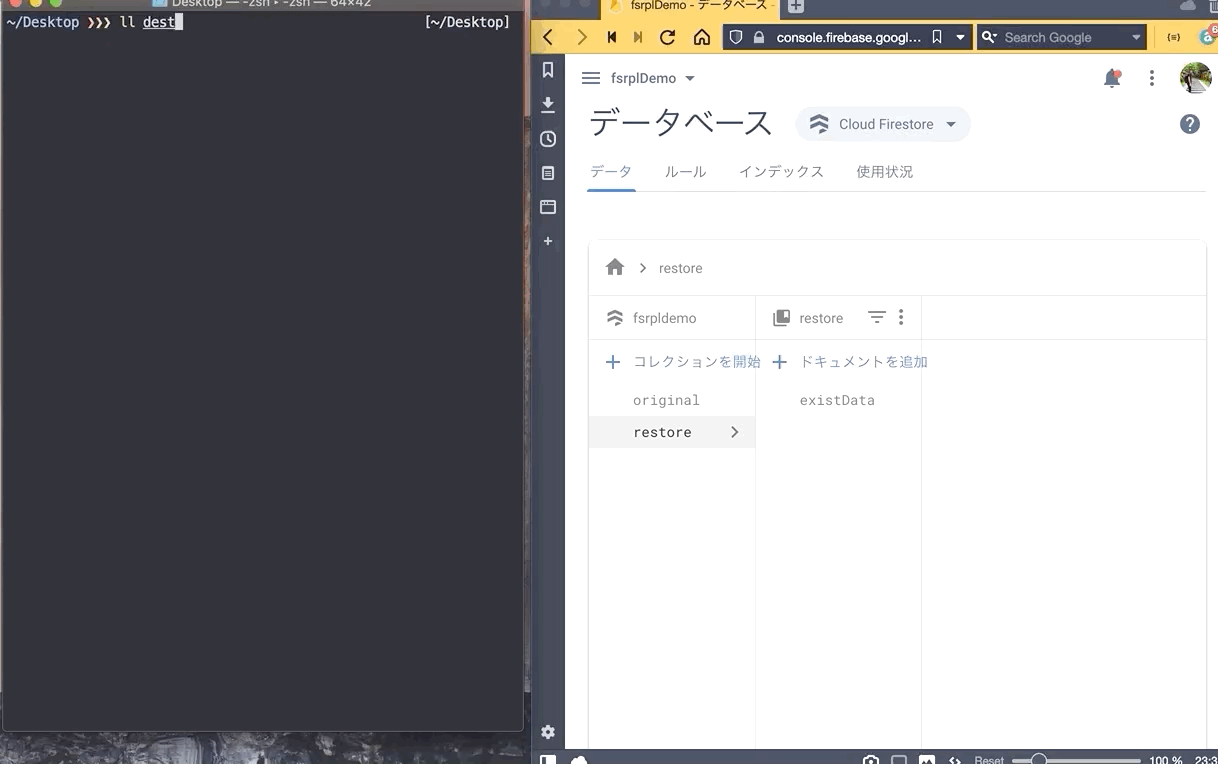USAGE
copy: copy some documents
- copy some documents with
copy sub command.
fsrpl copy [input document path] --dest [output document path]
e.g.
fsrpl copy "inputData/user" --dest "new/user"
fsrpl copy "inputData/*" --dest "outputData/*"
dump: export data from some documents
- export data from some documents with
dump sub command.
fsrpl dump [input document path] -f [json file directory path]
e.g.
fsrpl dump "inputData/user" --path ./
cat user.json
{
"_created_at": "2019-08-26T05:00:00Z",
"coin": 0,
"favorites": [
"1",
"2"
],
"isDeleted": true,
"mapData": {
"isMan": true,
"name": "subName"
},
"name": "user"
}
fsrpl dump "inputData/*" --path ./
cat cat.json | jq
{
"_created_at": "2019-08-26T05:00:00Z",
"coin": 0,
"favorites": [
"1",
"2"
],
"isDeleted": true,
"mapData": {
"isBrownhair": true,
"name": "calico"
},
"name": "cat"
}
cat dog.json | jq
{
"name": "dog"
...
}
...
restore: import data from some JSON files
- import data from JSON files with
restore sub command.
fsrpl restore [import document path] --path [import JSON file directory path]
e.g.
fsrpl restore "importData/*" --path "./"
save to importData/ dog. data: map[string]interface {}{"_created_at":time.Time{wall:0x0, ext:63702392400, loc:(*time.Location)(nil)}, "coin":0, "favorites":[]interface {}{"1", "2"}, "isDeleted":true, "mapData":map[string]interface {}{"b":true, "name":"mName"}, "name":"pig"}
...
restore: import Data to firestore emulator
- With setting the
FIRESTORE_EMULATOR_HOST environment variable, the restore command can be used to restore the emulator.
- The
--emulators-project-id option allow to specify the projectId with to avoid data conflicts by specifying it.
- see this examples
FIRESTORE_EMULATOR_HOST=**your_firestore_emulator** fsrpl restore [import document path] --path [import JSON file directory path] --emulators-project-id [test unique Id]
e.g.
FIRESTORE_EMULATOR_HOST=localhost:8080 fsrpl restore "importData/*" --path "./" --emulators-project-id emulator-integration-test
(for gopher) show Go struct from some document
- generate Go struct from some document with
-show-go-struct option
e.g.
fsrpl dump "inputData/user" --show-go-struct
package main
type JsonStruct struct {
CreatedAt string `json:"_created_at"`
Coin int64 `json:"coin"`
Favorites []string `json:"favorites"`
IsDeleted bool `json:"isDeleted"`
MapData struct {
B bool `json:"b"`
Name string `json:"name"`
} `json:"mapData"`
Name string `json:"name"`
}


